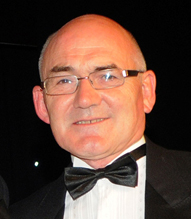An exam awarding body has called for qualifications regulator Ofqual to establish an expert panel on confronting the issue of qualifications fraud in industries which require qualifications to obtain a license to work.
Industry Qualifications (IQ) itself was a victim of qualifications fraud in 2015 when Ashley Commerce College (ACC) in east London was exposed by the BBC as having submitted examination and assessment framework that had been produced fraudulently. IQ says the qualifications concerned related to the security industry and were issued by it in good faith, and in accordance with established procedures. The qualifications issued fraudulently by ACC allowed some individuals to apply for a license to work in the security industry.
At the time the BBC reported “Industry insiders had told the BBC large numbers of colleges were willing to help students cheat security exams. One former SIA employee, speaking anonymously, said a high number of colleges were breaking the rules. He went on (to say) thousands of people [are] working in the industry illegally, having obtained accreditation illegally”.
Raymond Clarke, pictured, Chief Executive of IQ, said: “Since the exposure of ACC, IQ has been worked to encourage the prosecution of those involved in what was a complex fraud. This was our first experience of confronting systematic fraud, and despite the BBC coverage, it has been very difficult to gain traction with the police and regulatory authorities which would lead to the criminal prosecution of those involved. The need for the qualifications regulator, Ofqual, to take a lead in the creation of an environment which both reduces the risk of qualifications fraud and deals emphatically with those involved when it occurs is self-evident.”
Hence the proposed expert panel. Clarke says the panel should:
1.Establish the level and nature of qualifications fraud in the UK qualification system
2.Review regulatory mechanisms for recording and disseminating information on those involved in fraud and or serious malpractice, and developing proposals which would ensure that such individuals are barred from the UK qualifications framework.
3.Review the approach to the prosecution of fraud and the establishment of procedures and protocols with the police to ensure effective prosecution.
According to Clarke, the scale of the problem is unknown and information on those involved in fraud or serious malpractice incomplete and largely inaccessible. He said: “The worrying fact is that those involved in fraud at ACC could still be involved in the delivery of regulated qualifications elsewhere – nobody knows. What is known is that they have not had to face prosecution for illegal acts which have threatened public safety. There is an urgent need for stakeholders, under the leadership of Ofqual, to address this issue in an open and progressive manner. A failure to confront the issue serves the interests of nobody other than the fraudsters.”









